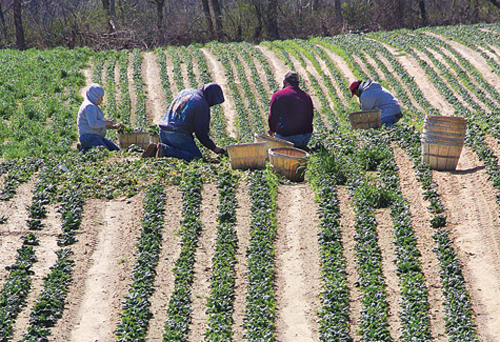Editorial: Is it time to rethink entire approach on pesticides?

As surely as spring brings warmer days and greener fields, there’s no end in sight to the tug of war over the use of pesticides and curtailing their use to reduce their effect on the environment, especially in our drinking water.
It has been thus for decades. The agricultural community has long argued that without pesticides there’s no future for farming here. For all we might wish otherwise, that’s an undisputable fact. Still, traces of agricultural chemicals continue to be detected in groundwater across the East End. For all we might wish otherwise, that’s part of the price of living with and embracing the farming industry.
As we discovered during the Temik scare of the 1970s, Long Island is unlike many other farming regions in that its agricultural soils sit atop sand left when the last glacier melted. Temik was highly effective in controlling the Colorado potato beetle, a rather voracious insect that can quickly strip the vegetation from entire fields. But Temik passed quickly through Long Island’s sandy soils, long before it could break down into less toxic compounds.
Temik was banned years ago, but the issue of pesticide contamination resurfaced earlier this year when the state Department of Environmental Conservation announced its intention to develop a strategy to prevent future pesticide contamination. It must be said that pesticide use is not confined to farm fields. Homeowners endeavoring to maintain their lawns, shrubs and flowers can be a significant part of the equation.
The simplistic approach to keeping pesticides out of our drinking water is to ban specific compounds, but farmers say without first conducting the proper research that’s not a realistic option. As Long Island Farm Bureau executive director Joe Gergela said during last week’s pesticide strategy hearing, “We know that we are a $300 million industry. Without the ability to protect that investment, we can’t farm here.”
She’s usually on the other side of the issue, and during the hearing she called for banning three specific pesticides, but Adrienne Esposito, executive director of the Citizens Campaign for the Environment, said it’s the DEC’s responsibility to find safer alternatives. She makes a good point, and the DEC should be working with farmers and scientists to do just that.
Given the complex nature of the problem and the countless sources of groundwater contamination, we wonder if the DEC is biting off more than it can chew and has, in effect, wasted its time with its 122-page report, which it refers to as a strategy, not a plan. The strategy will prove no more successful than maintaining the status quo. The protection of our water quality is a chronic concern, so let’s make sure we get it right before it’s too late.








